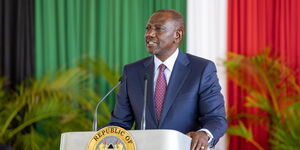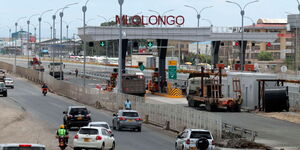The government is set to introduce new taxes on insurance premiums and carbon emissions as part of the new push to raise revenues. This comes barely five months after the government hiked taxes towards road maintenance.
According to the National Tolling Policy published on Tuesday, February 11, the government wants to introduce two new levies to increase funding for road construction and maintenance.
“To maintain proper road infrastructure financing, the policy proposes an increase in the fuel levy fund, the introduction of road tolls, the polluter pays principle, and insurance premium tax with the balance obtained from the exchequer,” reads part of the draft tolling policy.
The Ministry of Transport says the new levies are necessary as the revenue collected from taxes slapped on fuel continues to decrease. These proposals were also contained in the rejected Finance Bill of 2024.
The government says that although it has allocated the largest share of the national budget to roads, there are still significant funding gaps.
“Despite the increased funding to the sub-sector, there remains a remarkable gap in the financing of road infrastructure development, maintenance, and rehabilitation,” the government stated in the proposal.
According to the Ministry of Transport, one of the key reasons for introducing the new taxes is the decline in government revenue from fuel taxes. The government attributes this drop to Kenyans increasingly opting for electric vehicles and more fuel-efficient cars.
This comes despite last year’s increase in the Road Maintenance Levy Fund (RMLF) from Ksh7 to Ksh25 per litre of petrol and diesel. The RMLF is a tax paid by motorists when purchasing fuel, designed to support road construction and maintenance.
“The sale of petrol and diesel continues to decline as demand for cheaper, more fuel-efficient cars and electric vehicles rises. If the government continues to struggle with already strained budgets while the private sector shifts away from gasoline-powered vehicles, the condition of road infrastructure will further deteriorate,” the government argues in justifying the proposed new taxes.
To further support the introduction of these levies, the government contends that the RMLF alone cannot sustain the maintenance and expansion of the road network.
“The report concludes that the Road Maintenance Levy Fund cannot sustain the upkeep of the expanding road network in the long term. This unsustainability necessitates the adoption of strategies to secure alternative and long-term funding solutions for road maintenance, as well as alternative sources of road financing,” states the draft policy.
However, the draft policy does not provide details such as specific payment tariffs for the proposed taxes.
Last year, the government sought to introduce a motor vehicle tax—payable when obtaining insurance coverage—based on a vehicle’s value, through the Finance Bill 2024. The proposed levy was set at 2.5 per cent of the vehicle’s worth, with charges ranging from a minimum of Ksh5,000 to a maximum of Ksh100,000.
However, the plan collapsed amid mass protests, as the bill faced widespread opposition, particularly from the transport and logistics sector.
But no matter the premiums set, motorists will be forced to dig deeper into their pockets to maintain cars on the road. Already, there has been a drop in car sales last year, and the new taxes could deepen the crisis.












